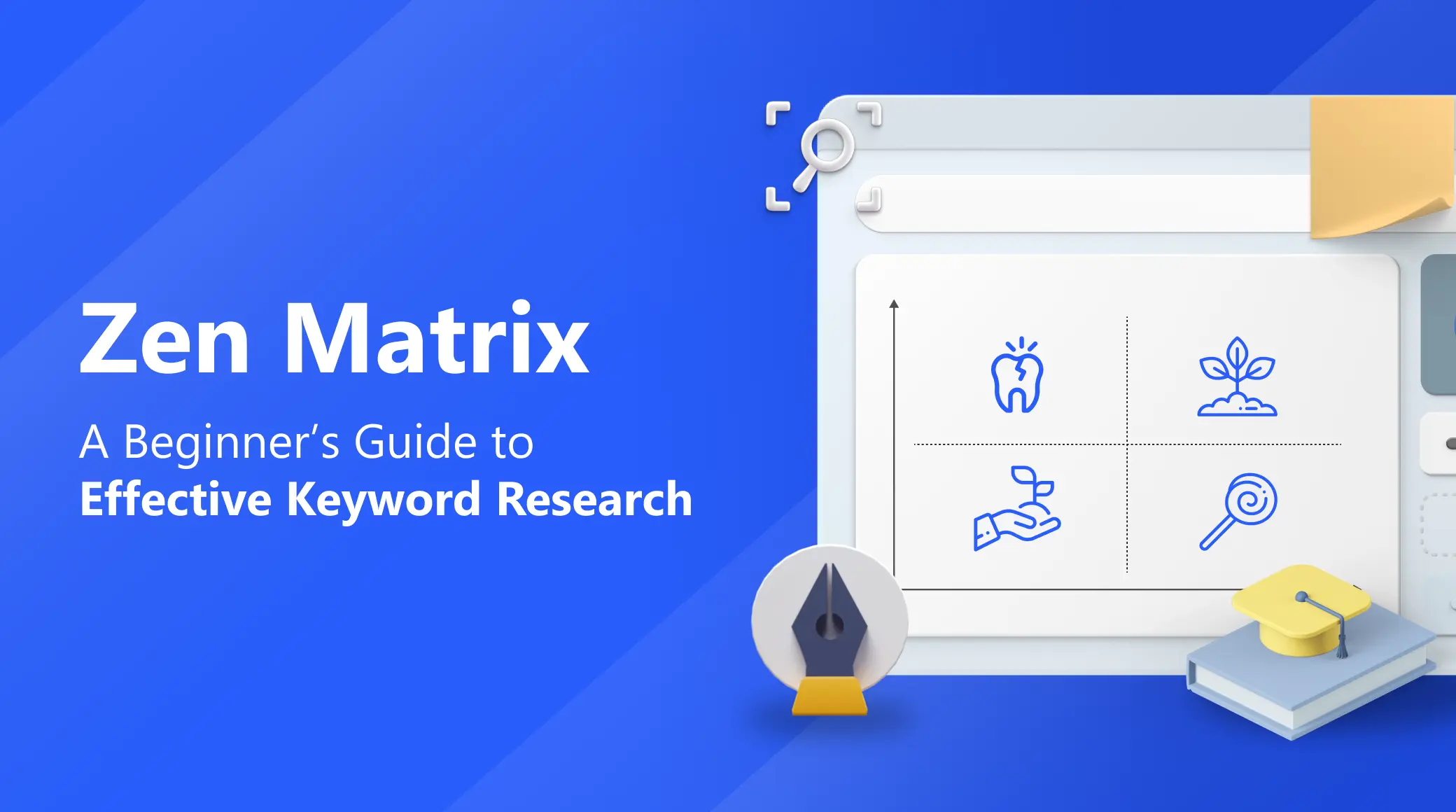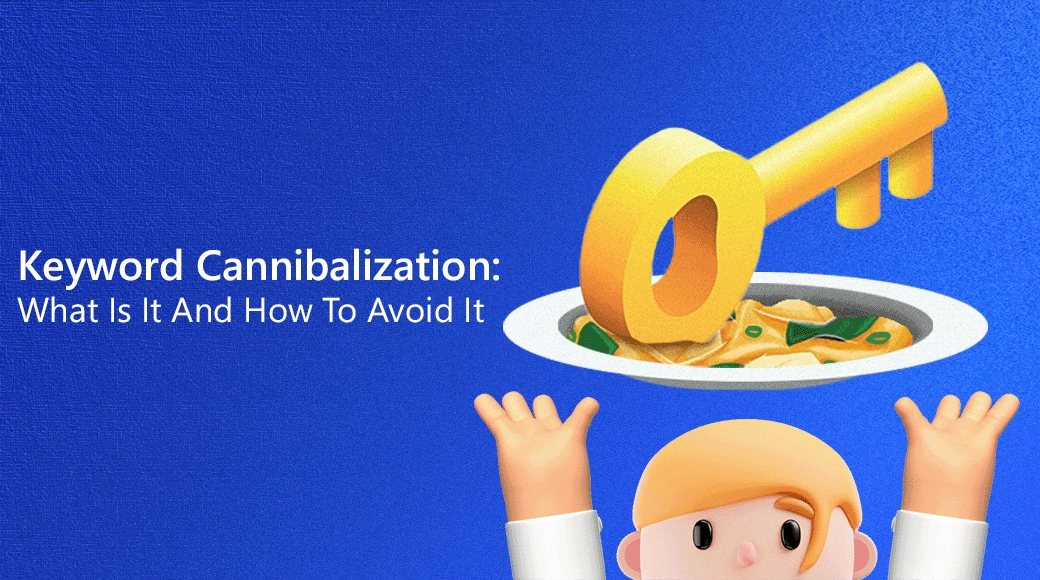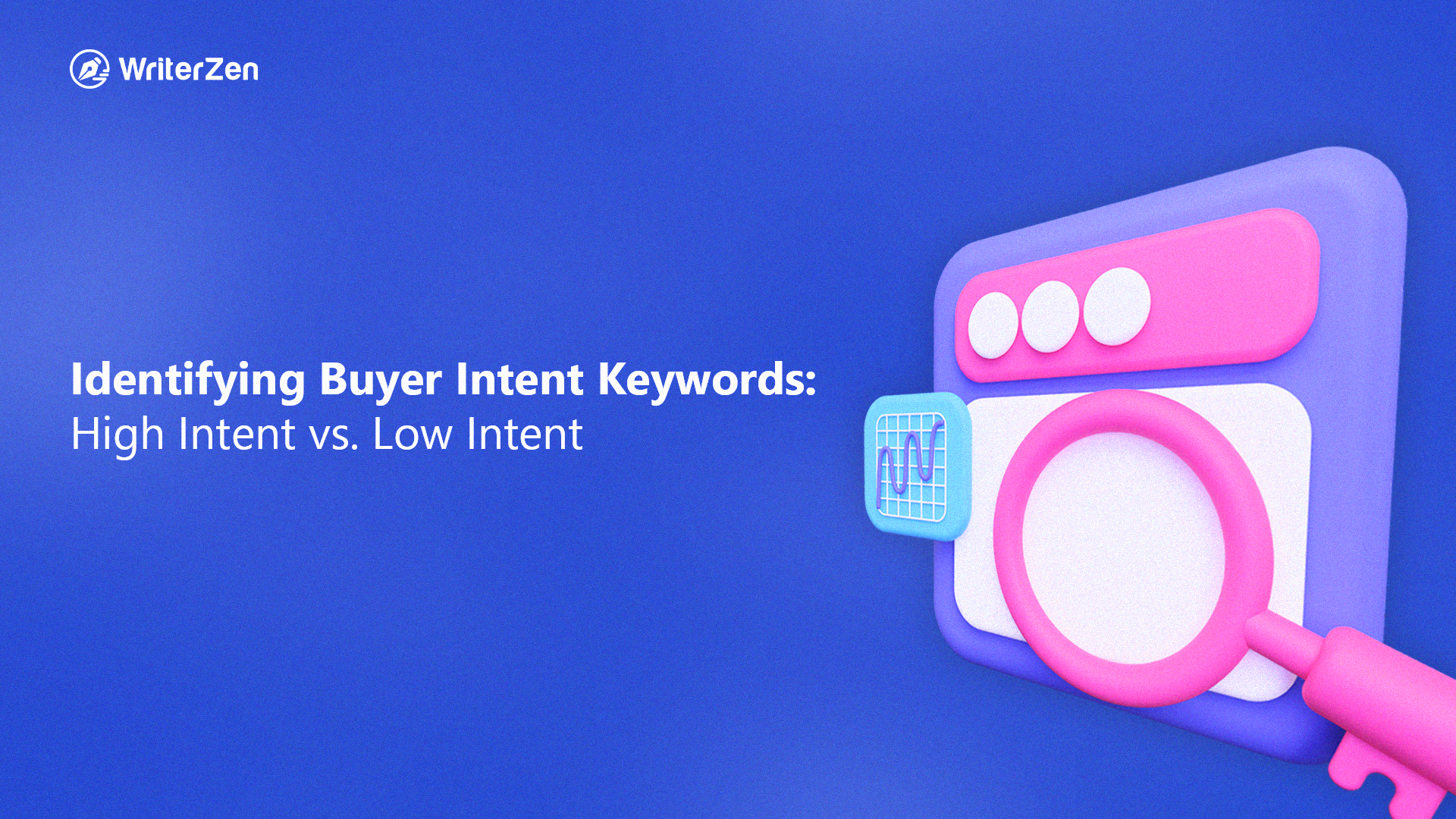Every marketer and business is looking for data and insight to support their next decisions in creating SEO campaigns. Various metrics help SEO experts to develop a winning SEO strategy.
However, it all begins with thorough research and analysis. One important metric that helps you rank your website higher on the SERP is keyword competition or keyword difficulty.
This article will explain some of the most common search engine optimization techniques to determine which keywords are competitive. But first, let’s talk about what keyword competition is.
What Is Keyword Competition?
Keyword competition is a metric that shows how much difficult it is to rank on the SERP for a keyword. The higher the keyword difficulty, the lower your chances of ranking on the SERP.
The study and analysis of keywords are heavily influenced by keyword competition as it helps you make smart decisions in framing website content.
The popularity of a keyword is associated with a high number of competitors, including big brands that use these keywords to reach a wider range of audiences. It depends on several factors, including competitors, content quality, domain authority, etc.
Why Is Keyword Difficulty Important?
Keyword difficulty helps you determine the best keywords for your website SEO. It affects your content strategy for SEO and resource planning.
Keyword difficulty enables you to judge and assume the end goal of your website ranking as well as create accessible and useful content for the users.
However, to know how to choose the best keywords, you must learn the concept of keyword difficulty. Sometimes, high-authority websites can afford to use high-difficulty keywords with high volume to reach the masses.
On the other hand, a new business with a relatively low website authority cannot get the benefits of high-difficulty keywords.

Factors Affecting Keyword Competition
There are factors that impact the strength of each keyword and numerous ways to understand how difficult a keyword is. Understanding the following factors, you can make decisions on choosing the most suitable keywords for your website:
Competitors
Identifying your competitors is the first step to understanding keyword competition. There are three types of competitors that causes difficulty in ranking the SERP.
-
Competitors within your industry
-
Competitors based on SEO
-
Competitors using a keyword
In some situations, these categories blend and confuse marketers. The key is to go to Google Search Console and find the top-ranking competitors in the same industry or offering the same products and services.
Analyze what a successful competitor’s website content includes and how they structure their website to answer search queries efficiently. You can analyze and compare the page authority of your competitors, their traffic, the referring domains directed at the competitor's website, etc.
These areas can be reviewed to understand how the competitor page is excelling.
Quality of Website Content
Content quality is a non-negotiable criterion for achieving a high rank in the SERP. With a target keyword, you optimize your website content and track its performance and competitiveness.
To provide high-quality content that is helpful, informative, and engaging, here’s how:
-
Conduct thorough keyword research: It’s important to understand your audience and how they enter their search queries. Here you need to create a list of keywords that is relevant to both your brand and your audience’s needs.
-
Create content that answers the search queries: Based on the list of keywords you’ve created, frame your content in an engaging and informative way. Ensure that the topic has relevance to your business goals.
-
Optimize the content: The website content has to be high-quality and easy to follow. The key is to make your website crawlable by using important keywords throughout the content, including URL, meta description, and meta titles.
-
Images should have alt texts: As mentioned above, optimizing goes all ways. Search engines have advanced and evolved over the years. Write clear descriptions of images in alt texts to help search engines crawl your website for SEO optimize images search.

Search Intent
Search intent is a qualitative aspect of SEO that pushes a website’s ranking when understood. Good content alone cannot sail your boat to rank high on the SERP. The right content with the right intention brings high traffic and ROI to your website.
Search intent is when a person types a search query into the search engine based on their needs at that moment. Put your content out there in a manner that is most aligned with the search intent of the users.
Search intent can be of 4 types:
-
Informational: When the user is learning about something.
-
Commercial: When the user researches to make the best decision.
-
Transactional: When the user purchases something.
-
Navigational: When a user is trying to look for a specific page.
To understand the nature of search intent, check the blog posts or website content ranking for your target keywords.
The search engine crawlers feature in-demand URLs with high click-through rates, high-quality content, and high-ranking keywords. Study what type of content ranks and try to align your content with similar goals.
Domain Authority
Domain authority is a difficult feat if you establish a new website. Being a trustworthy and reliable source of products and services is essential.
You can start with high search volume keywords in your content to appeal to a huge mass and slowly work your up using SEO tactics. Domain authority is the time-consuming process of reaching the higher ranks on SERP.
There are two ways in which domain authority impacts keyword competition:
-
If your webpage has low power or authority, the keywords you choose gets harder to rank on the SERP.
-
For competitors with high authority, it is easy to rank as they already have established their website as a credible source of information and trustworthy business.
-
Domain authority needs efforts from your end. This means you have to work on the quality of your content, the on-page optimization, and a huge inventory of good-quality backlinks. You must understand that Google does not rank sites but pages that optimize their content. Thus, when you are evaluating your keyword competition, check on the sites that are your competitors to see how they are fairing on the SERP.
Backlink Quality
Backlinks are a very effective part of a successful SEO campaign. The inbound links from authoritative sources add value to your website and make your domain trustworthy and a reliable source of information.
It boosts your reputation and increases your website ranking over time.
Thus, if the high-ranking search competitors for a particular keyword have healthy backlink profiles, the new page will find it hard to rank for the same keyword to displace them on the SERP.
Choosing a competitive keyword is a crucial step in SEO. There are many ways to determine whether your chosen keyword is competitive.
Look at the websites that rank high for that keyword. By studying keyword difficulty and their strategies, you can learn how to beat them and gain a leg up.
How to Choose the Best Keywords for Your Content
The best thing you can do to boost your website's ranking is to target high search volume yet low competition keywords, especially for beginners.
But it's essential to understand how keyword search volume and competition varies from business to business.
And while higher search volume doesn't mean more traffic, it allows you to analyze how many times a keyword has been searched within a given period and use this information to improve your SEO content strategy.

Therefore, as mentioned above, if your strategy involves targeting high search volume and high competition keywords and you have all the capabilities to compete, it’s totally fine.
Or if you’re new to the industry and you could find low-difficulty keywords with high search volume for your content, that’s the best scenario. But that’s not always the case. Here’s how SEO beginners can start to look for when making a keyword list:
Long Tail Keywords
Although long tail keywords tend to have low search volume, these phrases can give your website the chance to get higher conversion rates.
For example, if a generic high-volume focus keyword is ‘basil plant’, the typical long tail keyword will look like ‘why does my basil plant go dry.’ It is tackling a targeted issue that may have a solution on your website belonging to that industry.
It also has the potential to bring a higher ROI as the low competition long tail keyword gets optimized to be used on a specific page of your website that sells products to solve basil plants from drying or a nursery for plants, and many more.
A user is not always looking for a generic answer on the search engine. They hunt specific answers for specific queries that may be rare but have niche traffic.
For example, if someone is looking for a motel in a remote area with very less motels, a web search reveals the few motels available and serves the cause. So, they might search ‘where to find a motel on XYZ road’ to get targeted results on the SERP.
Thus, even with low traffic, you can bag a good deal of customers online. It all depends on how you can crack the choice of keywords based on certain factors affecting keyword competition.
Short Tail Keywords with Low Volume
Low-volume keywords receive less than 250 searches each month but can be highly relevant to your target audience if you’re familiar with your niche.
Although they may not bring you thousands of visitors each month, a number of these visitors can be converted into customers. These low-volume keywords may be used as a basis for your SEO strategy and keyword difficulty score.
To choose the most profitable keywords for your website, try digging deeper and testing out different low-competition keywords.
You can use the free keyword research tools to identify people's questions on search engines. Then, use them as the foundation of your content strategy and editorial calendar.
Evergreen Keywords
These keywords don't change seasonally, and their search volume will remain steady year-round.
It depends on the industry whether these keywords may have high search volume and low competition, but it’s certain that they are likely to rank for an extended time.
If you want to start a long-term campaign, you can opt for keywords with steady search volume all year round. And with your optimization and promotion strategies, your website will gradually earn higher ranking on the search results page.
Final Thoughts
Understanding the basis of keyword competition reveals a lot about the kind of opportunities your website can have. Use this keyword competition guide for beginners to get your content to rank high on the SERP among a huge list of competitors.
Calculating keyword difficulty based on the metrics mentioned above helps you craft better content with great SEO tactics to ensure high click-though-rate and ROI.
Combine this information with your domain’s ability to rank and your insights to put together a series of steps that helps your business flourish online.















